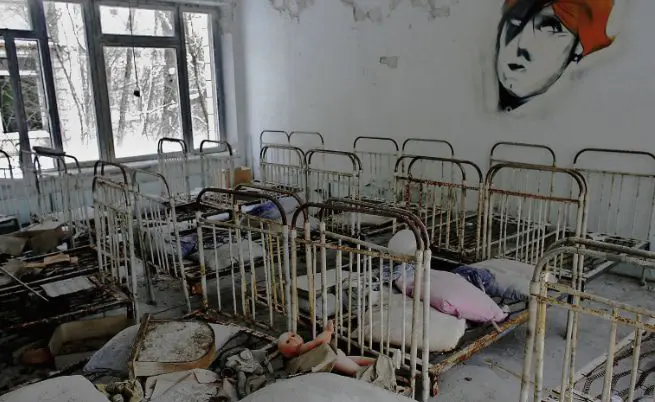Here is what happened on April 26
Here is the place where we will remind you what important events have happened today. Both historically and for things of public importance in the world.
The Chernobyl accident
In 1986, the fourth reactor of the Chernobyl nuclear power plant in Ukraine exploded and caught fire, the largest nuclear accident in the world. The accident caused a cloud of radioactive waste that passed over parts of the USSR, Eastern Europe and Scandinavia.
It is estimated that 8.4 million people were exposed to radiation – not only in Ukraine and Belarus, but also in Russia, the Scandinavian countries and Eastern Europe. Nearly 60% of radioactive waste falls on the territory of Belarus.
The incident raised the question of the safety of Soviet nuclear energy, slowing its development for some time. The USSR, and since its collapse, Russia, Ukraine and Belarus have incurred significant costs for decontamination and health care as a result of the Chernobyl accident.
The radioactive material released on the day of the accident is equal to 500 atomic bombs. That’s 500 times the amount measured since the atomic bomb fell on Hiroshima in 1945. The smoke column reached a few meters in height, and 90% of Chernobyl’s nuclear fuel ended up in the atmosphere. As a result of the explosion, fires raged in the area for more than 10 days.
Genetic mutations in the Chernobyl region continue today. They affect plants, animals and people born after the accident. The consequences are shocking and terrifying even for people with a strong psyche.
Radioactive contamination affects water and soil, which also affects the rapid growth and large size of plants. Both wild specimens and domestic crops are affected. Anomalies also occur in humans and animals.
In 1933, the Gestapo was established
The abbreviation Gestapo comes from Geheime Staatspolizei, which means secret state police and represents the official secret police in Nazi Germany during the Third Reich.
The Gestapo’s functions include both the usual tasks of investigating serious crimes and the fight against the ideological enemies of the National Socialist German Workers’ Party such as communists, anarchists, supporters of liberal democracy, undesirable elements such as Jews, Gypsies, Gypsies. Germans (citizens with physical disabilities), homosexuals, etc.
The Gestapo has full powers to act against the civilian population, even unrestricted by the judiciary. The powers of the secret police are limited only to representatives of the Party and the SS.
Tanzania was created
In 1964, the two former British colonies in Africa, Tanganyika and Zanzibar, merged into one United Republic of Tanzania.
On the territory of Tanzania is the most famous reserve in the world – the Serengeti. It is on the UNESCO World Heritage List.
The name Serengeti translates as “endless plains”. The park consists of grassy and bushy savannas. And the animals that live in its territory are lions, leopards, elephants, rhinos, giraffes, buffalo buffalo, hyenas, cheetahs, zebras, birds of prey and many others.
The civil war in Afghanistan begins
In 1979, the civil war in Afghanistan began, which lasted until February 1989. This military conflict on the territory of Afghanistan is only one of the stages of the civil war in the country, involving the presence on the ground of a military contingent of Soviet troops.
The armed forces of the pro-Soviet government of the Democratic Republic of Afghanistan, on the one hand, and the armed opposition (mujahideen), on the other, are involved in the conflict.
One of the reasons for the start of the civil war was the desire to support the pro-Soviet government in Kabul, which supports the concept of socialism in the country. Unable to cope with the insurgency, the Afghan government turned to the Soviet Union for help.
In the course of hostilities, the mujahideen, in turn, received support from experts from the United States, European countries, NATO, China and Pakistan’s special services.







